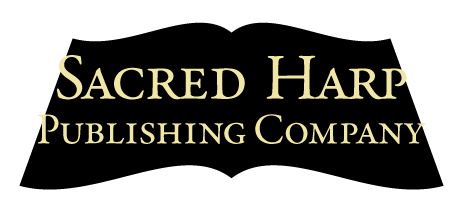Editor’s Note: This article was initially published in the Huntsville Sacred Harp Newsletter, no. 18 (February 1994), edited by David Ivey. Thanks to David and to the author for suggesting it for inclusion in this issue.
How many of you Sacred Harp singers can give credit, unquestionably, to that cherished oblong book for your introduction to your life-long mate? Who can say that whistling a song brought them a wife or a husband?

First Baptist Church, Montgomery, Alabama. Photograph by Carol M. Highsmith. Courtesy of the Library of Congress Prints and Photographs Division, LC-DIG-highsm-05622.
I can. Let me tell you about it.
In January, 1954, when I was a young unmarried newspaper reporter and a member of Montgomery’s First Baptist Church, the Howard College (now Samford University in Birmingham) a cappella choir presented a Sunday night program for our church. One of the pieces they sang was a beloved “standard” from the Sacred Harp tradition—I don’t now even remember which piece it was. Their singing put me in mind of The Sacred Harp, for then and even more so now, Sacred Harp is never very far from my mind.
I inherited a trait from my father, the late Leo R. Jones, who as he went about work or just “doing nothing,” would sing, whistle, or hum a Sacred Harp tune. That became my habit and remains with me, pronounced even, in the graying years. But I have other expressions of Sacred Harp music that Papa didn’t have. My vehicles are strewn with Sacred Harp cassettes, most of them homemade and not very well recorded. Though not an accomplished singer myself, I have a keen love of the music, and typically several times a week I hear those blessed songs from tapes—especially and unfailingly on Sunday morning during the twelve-minute drive to church.
With that background, then, one should not be surprised that following the Birmingham choir’s singing from The Sacred Harp book, I would have the music on my mind, and would be whistling a Sacred Harp tune as I climbed the stairs leading to the church’s fellowship hall, where our church young people would host the visiting choir singers in a little reception. On the stairs nearby, unknown to me at that point, was a pretty young lady, a student at Huntingdon College, who was visiting our church that night with a girlfriend. Frances Etheredge of Ozark was a product of Primitive Baptist and Sacred Harp traditions, the youngest child of the late Elder S. W. Etheredge, who pastored Primitive Baptist churches in the Wiregrass and elsewhere for sixty years. Frances, too, had a love for and devotion to the old music that was as fully developed as mine—and more informed, for she was a music student and would later teach Sacred Harp singing schools in the Dale County, Alabama, area.
So, it was quite understandable that Frances would hear and be attracted to the strains of the music, inexpertly whistled by the fellow who was three or four steps ahead of her on the stairs. She made herself known to me, who, by any unbiased measure, would have had to be considered gawky and somewhat socially deprived. That stairway self-introduction and further conversation in the social hour that followed led, naturally, to a suggestion on my part that she allow me to escort her back to her college dorm, in company with her girlfriend who paired up with a friend of mine. So, we descended the stairs to my new Chevy, still hardly girl-broke, and made our way in a decorous manner to the campus.
It was nearly as whirlwind a romance as one encounters. Several phone conversations occurred that week, followed not many days later by a bona-fide date. And another and another. In less than five months, on May 28, 1954, we were made Mr. and Mrs. by Elder Etheredge at the family home in Ozark. And we are still making music together.



